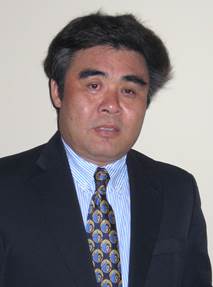学术报告: Symmetry Energy of Neutron-Rich Matter and its Astrophysical Impacts
报告人 :Prof. Bao-An Li (Department of Physics and Astronomy, Texas A&M University-Commerce ,USA)
时间 :6月10日(周日)上午10 :00, 地点 : 田家炳楼南203
邀请人:蒋维洲
欢迎各位老师、同学参加!
Abstract:
To pin down the Equation of State (EOS) of neutron-rich nucleonic matter and understand its transport properties has long been a major science driver for both nuclear physics and astrophysics. Nuclear symmetry energy encoding the energy cost of converting protons into neutrons in nuclear medium has been the most uncertain part of the EOS of dense neutron-rich nucleonic matter. The magnitude and density dependence of nuclear symmetry energy affect the radii, tidal polarization and cooling rates of neutron stars as well as the strain amplitude and frequencies of gravitational waves from spiraling neutron star binaries. Nuclear reactions especially those induced by highly neutron-rich radioactive beams, provide a unique means to probe experimentally the symmetry energy of neutron-rich matter in terrestrial laboratories. In light of the very recent observation of gravitational waves from the spiraling neutron star binary GW170817, in this talk, I will discuss the remaining issues concerning the density dependence of nuclear symmetry energy, its astrophysical impacts and examples of current efforts to constrain it both experimentally and theoretically.
 Dr. Bao-An Li is a theoretical nuclear physicist. He is currently a Texas A&M University System Regents’ Professor and a Fellow of the American Physical Society. Prof. Li received his Ph.D from Michigan State University in 1991. He held research, faculty and administrative positions at Oak Ridge National Laboratory in the U.S., Niels Bohr Institute in Denmark, Hahn-Meitner Institute in Germany, Texas A&M University in College Station and Arkansas State University before joining the Texas A&M University-Commerce in 2006 as the Head of the Department of Physics and Astronomy. His research interest is in understanding the dynamics of nuclear reactions from low to relativistic energies as well as the Equation of State of dense neutron-rich nucleonic matter and its astrophysical applications. His work has received over 14,500 citations with a H-index of 63 so far according to Google Scholars. He has been serving as the Principle Investigator of the China-U.S. Theory Institute of Physics with Exotic Nuclei (CUSTIPEN) funded by the U.S. Department of Energy since 2013.
Dr. Bao-An Li is a theoretical nuclear physicist. He is currently a Texas A&M University System Regents’ Professor and a Fellow of the American Physical Society. Prof. Li received his Ph.D from Michigan State University in 1991. He held research, faculty and administrative positions at Oak Ridge National Laboratory in the U.S., Niels Bohr Institute in Denmark, Hahn-Meitner Institute in Germany, Texas A&M University in College Station and Arkansas State University before joining the Texas A&M University-Commerce in 2006 as the Head of the Department of Physics and Astronomy. His research interest is in understanding the dynamics of nuclear reactions from low to relativistic energies as well as the Equation of State of dense neutron-rich nucleonic matter and its astrophysical applications. His work has received over 14,500 citations with a H-index of 63 so far according to Google Scholars. He has been serving as the Principle Investigator of the China-U.S. Theory Institute of Physics with Exotic Nuclei (CUSTIPEN) funded by the U.S. Department of Energy since 2013.
